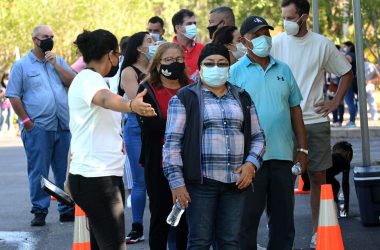Introduction
In light of the ongoing covid-19 pandemic and vaccine campaigns, researchers have discovered that antibodies developed against the virus may provide some level of immunity against other coronaviruses, including SARS and MERS. This finding has significant implications for future outbreaks of these viruses.
Background: SARS and MERS
SARS (Severe Acute Respiratory Syndrome) first emerged in China in 2002, causing a global outbreak that resulted in a high mortality rate. MERS (Middle East Respiratory Syndrome) is an even deadlier coronavirus, with a mortality rate of 1 in 3 infected individuals. Although control measures have largely stopped the spread of these viruses, sporadic MERS outbreaks still occur when the virus jumps from camels to humans.
Research Study
In a study conducted by Florian Krammer and his colleagues at the Icahn School of Medicine at Mount Sinai, blood samples were collected from 85 individuals in the US who had received mRNA-based vaccines against covid-19, had been infected with SARS-CoV-2 (the virus that causes covid-19), or both. These samples were compared to blood samples taken prior to the pandemic.
The blood samples were tested for antibodies against 21 different coronaviruses, including variants of SARS-CoV-2, SARS, MERS, and common cold-like coronaviruses. The results showed that the pre-pandemic blood samples had no antibodies that could bind to the tested coronaviruses, except for some binding to two cold-causing coronaviruses and a virus affecting cows.
In contrast, the samples taken during the pandemic showed antibodies that bound to most of the tested viruses to some degree. This suggests that individuals have developed a level of immunity that may not prevent infection, but could protect against severe illness and death. Additionally, T-cells, another arm of the immune system, may provide additional protection against coronaviruses.
Understanding the Immune Response
It is unclear why infection with SARS-CoV-2 and covid-19 vaccines generated such broad immunity compared to other coronaviruses. Previous research suggests that infection with a specific cold-causing coronavirus only leads to immunity against that particular virus. However, the pandemic may have triggered changes in the immune system, resulting in cross-reactivity of antibodies and immune memory.
Furthermore, the SARS-CoV-2 virus that causes covid-19 is different from other coronaviruses, which could explain the broader immune response. The severity of the infection may have played a role in the development of stronger immunity.
Implications and Future Research
While the findings are promising, they do not negate the need for preparedness against future pandemics caused by related viruses like SARS or MERS. The possibility of new coronaviruses or entirely different viruses triggering future pandemics still remains. However, this research could aid in the development of vaccines that provide robust protection against the entire coronavirus family.








